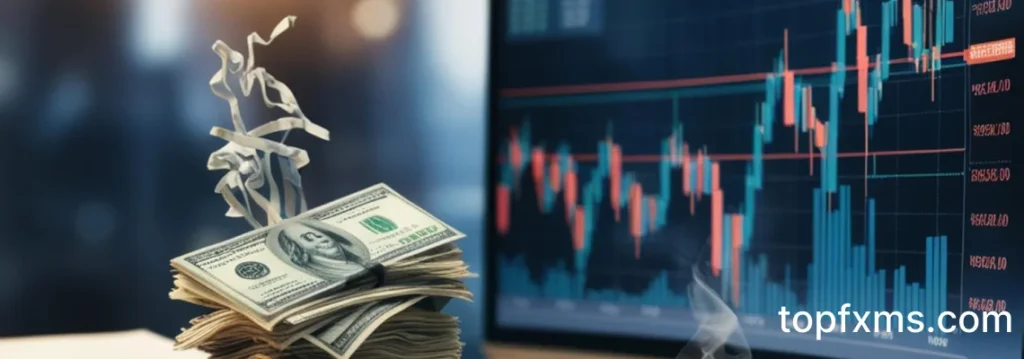

Optimizing Your Currency Conversions
Depending on our status or business, there are different reasons why we keep up with the value of a currency relative to another. Knowledge of exchange rates helps international traders settle imports and exports at favorable rates. In contrast, local traders may use a currency converter to determine the value of goods and services relative to other currencies. Travelers and governments exchange currencies to conclude a trade or spend money abroad. At individual and corporate levels, currency conversion ensures each party in a business transaction is updated on exchange rates. Whatever your reason for exchanging currencies, this article explains how you can optimize your currency conversions to get the best value for your money.
What is Currency Conversion?
Currency conversion is the process of expressing the value of one currency in the units of another currency based on a defined exchange rate. Advancements in the fintech industry have made it easy to calculate exchange rates using a currency converter calculator. This automates the conversion process using live data and inputs. You can also convert currencies at designated financial institutions or using an e-wallet. Exchange rates fluctuate, and significant changes may occur within a short time or over a long period. Economic factors like GDP, geopolitical events, and demand influence exchange rates.
How currency conversion works
The floating exchange rate is the system commonly used by most countries. In this system, the currency values depend on market forces, e.g., supply and demand, and conversions are based on the current exchange rate. For instance, the exchange rate between the U.S. dollar (USD) and the British Pound (GBP) on an online currency exchange converter is not constant but fluctuates rapidly based on market conditions.
There are two ways to convert currencies:
- Offline (physical) Exchange. Banks and other regulated financial institutions offer currency services. Businesses in this niche also provide conversion services, especially at strategic points like banks, hotels, and airports. Customers pay a separate fee to use such services or transact at lower/higher rates that are less favorable than market rates.
- Online Exchange. Online platforms like payment processors and currency converters offer services via websites and mobile apps, allowing you to convert most currencies quickly and using competitive exchange rates.
Example of currency conversion
If the USD to GBP exchange rate is 0.76, you will receive £0.76 for each dollar you have. That means $10 would give £7.6, and $100 would give £76. If you have some pounds for exchange, the rate would be $1.31, and you would have to divide the amount by 1.31. So, £10 would yield $7.63.
Types of converters
Choosing the most suitable currency converter app will depend on the user. There are various types available today. Some of these are:
- Online tools. The Bankrate Converter and Fixer are excellent platforms for digital currency conversion. The former uses market data from OANDA, while the latter deploys APIs to integrate currency conversion in apps.
- FinTech Platforms. Companies like Paypal and Wise, which are involved in money transfer and payment processing, also offer currency conversion, allowing users to convert currencies without making transfers.
- Manual Conversion Tools. These apps offer live and historical data and calculators for easy conversion. Users can perform conversions and other simple mathematical functions.
If you are looking for a simple app to calculate the equivalent of one currency in another, a simple online calculator may do the job. However, you will need a platform that connects traders or provides liquidity to exchange one currency for another. This is where currency conversion becomes forex trading. Forex -foreign exchange- trading involves buying, selling, and exchanging currencies globally. It is a massive industry with trillions traded daily.


How to Choose a Suitable Forex Converter
Consider these before you choose a Forex converter:
- Regulatory Compliance. Choosing a platform that complies with local and international regulations is also essential. For instance, a currency converter Malaysia must be licensed by the Securities Commission Malaysia (SCM) or the Labuan Financial Services Authority (LFSA), depending on where they are registered.
- Identify your needs, such as payment processing, cross-border payment, savings, etc.
- Real-Time Exchange Rates. Real-time data allows you to exchange at a favorable rate and predict rates.
- Conversion Time Window. The converter should offer a window during which you can convert the currency at a particular rate. The window typically lasts for a few minutes.
- Available Currencies. Choose an online currency converter that supports major, minor, and exotic currency pairs. A comprehensive converter allows conversion between a wide range of currencies.
- UX and Mobile Compatibility. Smooth navigation and a user-friendly interface enhance converters. Choose a platform with a mobile application for on-the-go access, especially when traveling.
- Integrated Services. The best converters integrate payment services and money transfers and may offer brokerage services.
Finally, consider the fees you may pay on each platform; choose a service that does not charge conversion fees or only charges a small amount to cover service costs.
Maximizing the Capabilities of Forex Converters
You must use the features correctly and stay updated on changes to make the most of a universal currency converter. The first step is to ensure access to live rates and then set rate alerts to track changes as they happen. Rate alerts help forex traders execute traders who satisfy their conditions before buying or selling currencies. Live data enables you to secure better rates and convert at optimal times. You can also explore advanced features such as multi-currency accounts, in-app conversions, bookkeeping tools, and external integration, especially for businesses. Leveraging historical data to determine favorable times for converting currencies is also necessary.
Tips for Getting the Best Rates in Currency Conversion
Choosing the right service provider may lower your fees and remove risks associated with offline exchanges. Getting the best currency converter app is crucial in finding the best exchange rates. Other things to do are:
- Avoid Hotel and Airport Conversion. Don’t convert your currencies at hotels and airport kiosks, as they mostly use rates that favor them more than their clients.
- Analyse Previous Data. Forex prices respect historical data, and analyzing data helps predict prices.
- Avoid Peak Times. Converting currencies during peak periods, such as weekends and holidays, may be less profitable for traders due to lower rates.
- Use Multi-Currency Accounts. In-app conversion and multi-currency accounts allow you to switch currencies without live exchange/trading. This could lower the overall costs associated with currency conversions. Multi-currency accounts also enable hedging to protect against volatility.
- Spend Balances. Spending balances of converted currencies are often better than returning the amount to the initial currency. Each transaction attracts a fee and could significantly reduce the final amount received.
- Wait Out Choppy Markets. It is best to wait for the exchange rate to ‘settle’ after trading sessions. Wait out choppy markets until you identify a clear trend with great rates.
While targeting the best rates, it is crucial to remember that price trends may last for months; it is best to stagger bulk conversions to take advantage of favorable times.
Advantages of Live Converter
There are several benefits to using a Forex converter:
- Access to real-time exchange rates and market insights.
- Convenience and accessibility, as they are available 24/7 on websites and mobile apps.
- Quick, fast, and less cost-effective for exchanging currencies.
- Integrated features like budget planning and financial reporting help users manage their finances in one place.
- Data exports for offline use and offline functionality may allow you to access cached exchange rates in areas with limited internet connectivity.
- Converters aid companies in imports and exports.
- Some platforms allow forward contracts, which help get the best rates.
- Converters may become significant liquidity pools for the forex market.
Strategies for Maximizing Benefits
There are different strategies for you to get the best rates consistently. For instance, if you use a PayPal currency converter service, you can set periodic payments for personal and merchant accounts from one place while integrating cryptocurrency and fiat accounts. Here are other techniques to guide you:
- Use real-time exchange rates.
- Take advantage of multi-currency accounts to lower fees and hedge your funds.
- Diversify your currency portfolio and stagger conversions.
- Explore conversion tools and integrated apps fully to find offers.
- Time conversions to get the best rates.
- Compare conversion platforms to find the best conditions.


Safeguarding Your Currency Conversion Transactions
Here are tips to safeguard your transactions:
- Use regulated platforms that implement standard security measures. For example, a Malaysia currency converter should be regularly evaluated for compliance and integrity to ensure customers’ safety.
- Don’t use public WiFi to access sensitive data, especially at airports, hotels, and markets.
- Plan and convert currencies to avoid last-minute rushes.
- Monitor exchange rates to find favorable periods.
- Hedge and diversify your funds to minimize the risks of losses.
Risks in Currency Conversion
Currency conversions face the most risk from sudden price changes. Price volatility increases your portfolio if you are on the right side, but volatility in the opposite direction of your action may cause significant losses. For instance, if you want to convert USD to GBP, but the exchange rate increases, you get fewer GBP for the same amount. Fraud and security risks are severe, especially with currency converter API integration.
The top risks are:
- Exchange rate fluctuations.
- Transaction risks that arise from the time lag between initiation and settlements.
- Broader economic risks that influence markets.
- Liquidity risks.
- Fraud and security risks.
Safety Measures in Online Currency Conversion
Staying safe when converting currencies involves developing a safety-first culture and implementing safety measures. It is crucial to carefully choose a platform that is secure, stable, and regulated to convert currencies or trade forex. There are numerous online currency conversion apps available today. For context, a simple search for a Google currency converter app yields hundreds of results. Here are helpful tips:
- User reputable converters.
- Verify websites before transacting.
- Enable two-factor authentication to strengthen security.
- Review terms and conditions and privacy policies.
- Keep records and update tax returns.
- Avoid phishing and suspicious links.
FAQ
Yes, they are generally safe. Fiat converters, as well as Bitcoin currency converter apps, can be used for large transactions. These apps typically convert any amount of fiat or Bitcoin for a small fee.
There are some risks associated with currency conversion, such as fluctuating exchange rates and fraud risks. Exchange rates change rapidly on a live currency converter due to economic conditions, market sentiment, or geopolitical events. A sudden drop in the value of the currency you’re converting from can result in receiving less than expected in the target currency. Ensure you use regulated platforms that provide live data access and implement various security measures to safeguard funds and data from malicious users. Another strategy is using forward contracts, which allow you to lock in a specific rate for a future transaction, protecting you from potential adverse movements in the market.
It relies on data aggregators and official sources for market data, so they are usually accurate, provided internet connectivity is stable.









